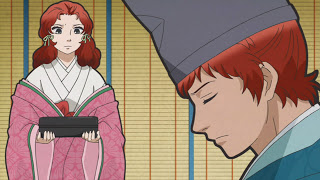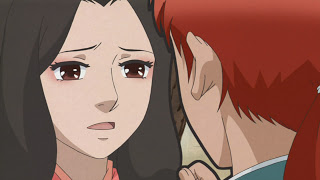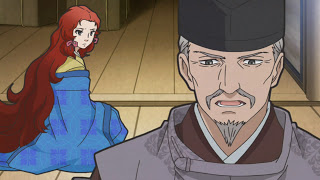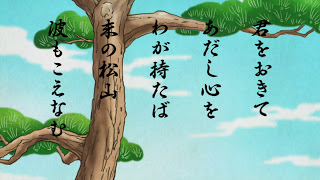![[HorribleSubs] Utakoi - 08 [720p].mkv_snapshot_05.01_[2012.08.20_20.42.32] [HorribleSubs] Utakoi - 08 [720p].mkv_snapshot_05.01_[2012.08.20_20.42.32]](https://lh4.ggpht.com/-zaZmLhd5wdM/UDP0ZFpotWI/AAAAAAABrp8/QuCwImzd6WA/%25255BHorribleSubs%25255D%252520Utakoi%252520-%25252008%252520%25255B720p%25255D.mkv_snapshot_05.01_%25255B2012.08.20_20.42.32%25255D_thumb.jpg?imgmax=800) |
![[HorribleSubs] Utakoi - 08 [720p].mkv_snapshot_10.39_[2012.08.20_20.48.41] [HorribleSubs] Utakoi - 08 [720p].mkv_snapshot_10.39_[2012.08.20_20.48.41]](https://lh6.ggpht.com/-6ZNnAq6df60/UDP0a5LDXNI/AAAAAAABrqM/g1d6pUTwnkI/%25255BHorribleSubs%25255D%252520Utakoi%252520-%25252008%252520%25255B720p%25255D.mkv_snapshot_10.39_%25255B2012.08.20_20.48.41%25255D_thumb.jpg?imgmax=800) |
![[HorribleSubs] Utakoi - 08 [720p].mkv_snapshot_13.56_[2012.08.20_20.51.59] [HorribleSubs] Utakoi - 08 [720p].mkv_snapshot_13.56_[2012.08.20_20.51.59]](https://lh4.ggpht.com/-G7znE_Cldwk/UDP0cdtv04I/AAAAAAABrqc/RfJevO5zH-0/%25255BHorribleSubs%25255D%252520Utakoi%252520-%25252008%252520%25255B720p%25255D.mkv_snapshot_13.56_%25255B2012.08.20_20.51.59%25255D_thumb.jpg?imgmax=800) |
If you love something, set it free…
Fujiwara no Sanekata
Kaku to dani
Eyawa ibuki no
SashimoguSashimo shiraji na
Moyuru omoi o
How can I tell her
How fierce my love for her is?
Will she understandThat the love I feel for her
Burns like ibuki mugwort?
Anyone who watched Chihayafuru knows that poem well, of course. It popped up during Karuta matches on a few occasions and for whatever reason really stuck in my head more than most of the poems in the Ogura Hyakunin Isshu. Actually, I think the reason is pretty obvious when you consider Taichi’s plight – in some ways, Sanekata’s poem feels like it could be Taichi’s life story. Considering how direct a work it seemingly is, it’s remarkable that it can apply equally well to Taichi’s feelings for Chihaya and to a completely different situation of the sort that sees it used in Utakoi.
 There are already several themes that run through this series and the way it interprets the Ogura, and one of them is the plight on intelligent women in the Heian era, and their struggle to be accepted for their minds and talents. Some of this is no doubt a concession to modernism, but there’s also the very real element that the literary circle of the time is peppered by remarkable women who made quite a mark on history, and few more so than Sei Shounagon (Chihara Minori), who wrote The Pillow Book, the tale of court life published in the early 11th Century that would be on to be one of the most important historical documents in Japanese literature. She was also renowned for her feud with Shikibu Murasaki, a fellow courtier who wrote an even more important work, The Tale of Genji. There’s no mention of her here – perhaps we’ll meet her later – but we do meet Sei when she was still known as Nagiko, a young girl moving from the provinces to the capitol with her father and brother.
There are already several themes that run through this series and the way it interprets the Ogura, and one of them is the plight on intelligent women in the Heian era, and their struggle to be accepted for their minds and talents. Some of this is no doubt a concession to modernism, but there’s also the very real element that the literary circle of the time is peppered by remarkable women who made quite a mark on history, and few more so than Sei Shounagon (Chihara Minori), who wrote The Pillow Book, the tale of court life published in the early 11th Century that would be on to be one of the most important historical documents in Japanese literature. She was also renowned for her feud with Shikibu Murasaki, a fellow courtier who wrote an even more important work, The Tale of Genji. There’s no mention of her here – perhaps we’ll meet her later – but we do meet Sei when she was still known as Nagiko, a young girl moving from the provinces to the capitol with her father and brother.
 Trust is another theme that’s been common in Utakoi, and no less so here. There’s the matter of Nagiko’s brother Munenobu (Toyonaga Toshiyuki), who lloved a girl in the provinces and made a mutual promise with her to be true to each other even after he left for the capital. She was to join him but her family was wealthier than his, and it wasn’t a good match – she ended up marrying another. There’s an implication that she was forced to, but the tone here indicates that this left Nagiko somewhat bleak on the prospect of trust and love – this despite their extremely understanding and kind father, who told her than a life without trust wasn’t worth living.
Trust is another theme that’s been common in Utakoi, and no less so here. There’s the matter of Nagiko’s brother Munenobu (Toyonaga Toshiyuki), who lloved a girl in the provinces and made a mutual promise with her to be true to each other even after he left for the capital. She was to join him but her family was wealthier than his, and it wasn’t a good match – she ended up marrying another. There’s an implication that she was forced to, but the tone here indicates that this left Nagiko somewhat bleak on the prospect of trust and love – this despite their extremely understanding and kind father, who told her than a life without trust wasn’t worth living.
 After many years have passed and Nagiko has divorced, her father encourages the playboy Fujiwara no Sanekata (Koyasu Takehito) – yet another reputed model for Genji Hikaru (along with Narihira) – to court her, which he does. She’s resistant, but eventually comes to love him – and he her, seemingly, even composing the above poem to communicate his feelings. But when an opportunity comes for her to serve at court under Empress Teishi, he feels she should accept and go where her mind might win her favor. He also feels that once she’s around smarter and more learned men than he, she’ll meet others more suited to her, so he effectively leaves her – forcing her to accept the position at court that he was convinced she was refusing for his benefit. It’s an interesting reversal of the story of Munesada and Yoshiko, when he felt that she would be unhappy at the palace because of her education and talent. Does this reflect a change in court life from the early to mid-Heian era?
After many years have passed and Nagiko has divorced, her father encourages the playboy Fujiwara no Sanekata (Koyasu Takehito) – yet another reputed model for Genji Hikaru (along with Narihira) – to court her, which he does. She’s resistant, but eventually comes to love him – and he her, seemingly, even composing the above poem to communicate his feelings. But when an opportunity comes for her to serve at court under Empress Teishi, he feels she should accept and go where her mind might win her favor. He also feels that once she’s around smarter and more learned men than he, she’ll meet others more suited to her, so he effectively leaves her – forcing her to accept the position at court that he was convinced she was refusing for his benefit. It’s an interesting reversal of the story of Munesada and Yoshiko, when he felt that she would be unhappy at the palace because of her education and talent. Does this reflect a change in court life from the early to mid-Heian era?
![[HorribleSubs] Utakoi - 08 [720p].mkv_snapshot_06.33_[2012.08.20_20.44.04] [HorribleSubs] Utakoi - 08 [720p].mkv_snapshot_06.33_[2012.08.20_20.44.04]](https://lh3.ggpht.com/-7mZbdPWi5LQ/UDP0d8qQaHI/AAAAAAABrqs/k6aKZnT7WNs/%25255BHorribleSubs%25255D%252520Utakoi%252520-%25252008%252520%25255B720p%25255D.mkv_snapshot_06.33_%25255B2012.08.20_20.44.04%25255D_thumb.jpg?imgmax=800) |
![[HorribleSubs] Utakoi - 08 [720p].mkv_snapshot_08.11_[2012.08.20_20.45.41] [HorribleSubs] Utakoi - 08 [720p].mkv_snapshot_08.11_[2012.08.20_20.45.41]](https://lh6.ggpht.com/-_s8o5D2msw4/UDP0fevl_8I/AAAAAAABrq8/cAy4jPhHfCE/%25255BHorribleSubs%25255D%252520Utakoi%252520-%25252008%252520%25255B720p%25255D.mkv_snapshot_08.11_%25255B2012.08.20_20.45.41%25255D_thumb.jpg?imgmax=800) |
![[HorribleSubs] Utakoi - 08 [720p].mkv_snapshot_08.48_[2012.08.20_20.46.35] [HorribleSubs] Utakoi - 08 [720p].mkv_snapshot_08.48_[2012.08.20_20.46.35]](https://lh3.ggpht.com/-dnICNTEZmJc/UDP0hLhTFcI/AAAAAAABrrM/VS7iQFUoWac/%25255BHorribleSubs%25255D%252520Utakoi%252520-%25252008%252520%25255B720p%25255D.mkv_snapshot_08.48_%25255B2012.08.20_20.46.35%25255D_thumb.jpg?imgmax=800) |
![[HorribleSubs] Utakoi - 08 [720p].mkv_snapshot_09.34_[2012.08.20_20.47.21] [HorribleSubs] Utakoi - 08 [720p].mkv_snapshot_09.34_[2012.08.20_20.47.21]](https://lh3.ggpht.com/-6bQ12yHLySw/UDP0jPCbdRI/AAAAAAABrrc/R9-XjgtllN0/%25255BHorribleSubs%25255D%252520Utakoi%252520-%25252008%252520%25255B720p%25255D.mkv_snapshot_09.34_%25255B2012.08.20_20.47.21%25255D_thumb.jpg?imgmax=800) |
![[HorribleSubs] Utakoi - 08 [720p].mkv_snapshot_09.57_[2012.08.20_20.47.59] [HorribleSubs] Utakoi - 08 [720p].mkv_snapshot_09.57_[2012.08.20_20.47.59]](https://lh6.ggpht.com/-lhvnyTj88c4/UDP0lLwG--I/AAAAAAABrrs/efhtwDQWPTk/%25255BHorribleSubs%25255D%252520Utakoi%252520-%25252008%252520%25255B720p%25255D.mkv_snapshot_09.57_%25255B2012.08.20_20.47.59%25255D_thumb.jpg?imgmax=800) |
![[HorribleSubs] Utakoi - 08 [720p].mkv_snapshot_10.06_[2012.08.20_20.48.09] [HorribleSubs] Utakoi - 08 [720p].mkv_snapshot_10.06_[2012.08.20_20.48.09]](https://lh3.ggpht.com/-e9ziJQNG-tM/UDP0m4SclzI/AAAAAAABrr8/AQW_wSMUJCI/%25255BHorribleSubs%25255D%252520Utakoi%252520-%25252008%252520%25255B720p%25255D.mkv_snapshot_10.06_%25255B2012.08.20_20.48.09%25255D_thumb.jpg?imgmax=800) |
![[HorribleSubs] Utakoi - 08 [720p].mkv_snapshot_11.49_[2012.08.20_20.49.52] [HorribleSubs] Utakoi - 08 [720p].mkv_snapshot_11.49_[2012.08.20_20.49.52]](https://lh5.ggpht.com/-TVvBiXBq92Q/UDP0pQFsXyI/AAAAAAABrsM/k4SOKhVZcMU/%25255BHorribleSubs%25255D%252520Utakoi%252520-%25252008%252520%25255B720p%25255D.mkv_snapshot_11.49_%25255B2012.08.20_20.49.52%25255D_thumb.jpg?imgmax=800) |
![[HorribleSubs] Utakoi - 08 [720p].mkv_snapshot_12.19_[2012.08.20_20.50.22] [HorribleSubs] Utakoi - 08 [720p].mkv_snapshot_12.19_[2012.08.20_20.50.22]](https://lh5.ggpht.com/-Ikk-Zm7WTtg/UDP0q0sKrlI/AAAAAAABrsc/JJIRIM7mS8A/%25255BHorribleSubs%25255D%252520Utakoi%252520-%25252008%252520%25255B720p%25255D.mkv_snapshot_12.19_%25255B2012.08.20_20.50.22%25255D_thumb.jpg?imgmax=800) |
![[HorribleSubs] Utakoi - 08 [720p].mkv_snapshot_13.50_[2012.08.21_13.47.15] [HorribleSubs] Utakoi - 08 [720p].mkv_snapshot_13.50_[2012.08.21_13.47.15]](https://lh5.ggpht.com/-OAbVCk5KTGU/UDP0ssH3prI/AAAAAAABrss/TGbR17EvWoU/%25255BHorribleSubs%25255D%252520Utakoi%252520-%25252008%252520%25255B720p%25255D.mkv_snapshot_13.50_%25255B2012.08.21_13.47.15%25255D_thumb.jpg?imgmax=800) |
![[HorribleSubs] Utakoi - 08 [720p].mkv_snapshot_17.44_[2012.08.20_20.56.06] [HorribleSubs] Utakoi - 08 [720p].mkv_snapshot_17.44_[2012.08.20_20.56.06]](https://lh6.ggpht.com/-1ub59M81t7c/UDP0uYihoxI/AAAAAAABrs8/5ucvswJy-gI/%25255BHorribleSubs%25255D%252520Utakoi%252520-%25252008%252520%25255B720p%25255D.mkv_snapshot_17.44_%25255B2012.08.20_20.56.06%25255D_thumb.jpg?imgmax=800) |
![[HorribleSubs] Utakoi - 08 [720p].mkv_snapshot_19.19_[2012.08.20_20.57.41] [HorribleSubs] Utakoi - 08 [720p].mkv_snapshot_19.19_[2012.08.20_20.57.41]](https://lh4.ggpht.com/-6f-3YaeBLvQ/UDP0wEIwoHI/AAAAAAABrtM/9Nc4eQ4i-Cc/%25255BHorribleSubs%25255D%252520Utakoi%252520-%25252008%252520%25255B720p%25255D.mkv_snapshot_19.19_%25255B2012.08.20_20.57.41%25255D_thumb.jpg?imgmax=800) |
![[HorribleSubs] Utakoi - 08 [720p].mkv_snapshot_22.27_[2012.08.20_21.00.49] [HorribleSubs] Utakoi - 08 [720p].mkv_snapshot_22.27_[2012.08.20_21.00.49]](https://lh5.ggpht.com/-rJftzFDpbaw/UDP0xtcXssI/AAAAAAABrtc/n1VBJfSDRoc/%25255BHorribleSubs%25255D%252520Utakoi%252520-%25252008%252520%25255B720p%25255D.mkv_snapshot_22.27_%25255B2012.08.20_21.00.49%25255D_thumb.jpg?imgmax=800) |






Highway
August 23, 2012 at 1:14 pmI found the story of Sanekata and Sei Shounagon to be the most emotionally connecting story they've shown so far, to me personally. Most of the time, I find the formal language and attitudes, as well as the rather static animation, damp the emotional impact, but on this one, the love that Sanekata still held for Nagiko even years later seemed to shine through, as well as her mixed feelings of love for him: that she did truly love him before he left her, that she has truly enjoyed her life in the court, and has been fulfilled by it, but also that her love for him now mixes the two loves: for him and for his sacrifice allowing her to live this life that she has truly enjoyed. There seemed to be no lingering bitterness about their separation, even though it was apparently hurtful at the time.
That's probably really rambling, but mostly this felt like the best story of the series so far.
onlythetruth90
November 21, 2012 at 12:27 amSince you mentioned here Chihayafuru and Taichi's life story…could you tell me which episode shows him associated to this beautiful poem? I loved that anime! And your blog's amazing! 😀
admin
November 21, 2012 at 12:32 amDamn, I don't remember which ep – it's been quite a while. It was actually used more than once.
Thanks for the kind words, BTW. Looking forward to Chihayafuru 2!
Nikos Effraimidis
September 23, 2013 at 8:13 amChihayafuru 2 episode 19. On the final against Fujisaki High School. Great episode…